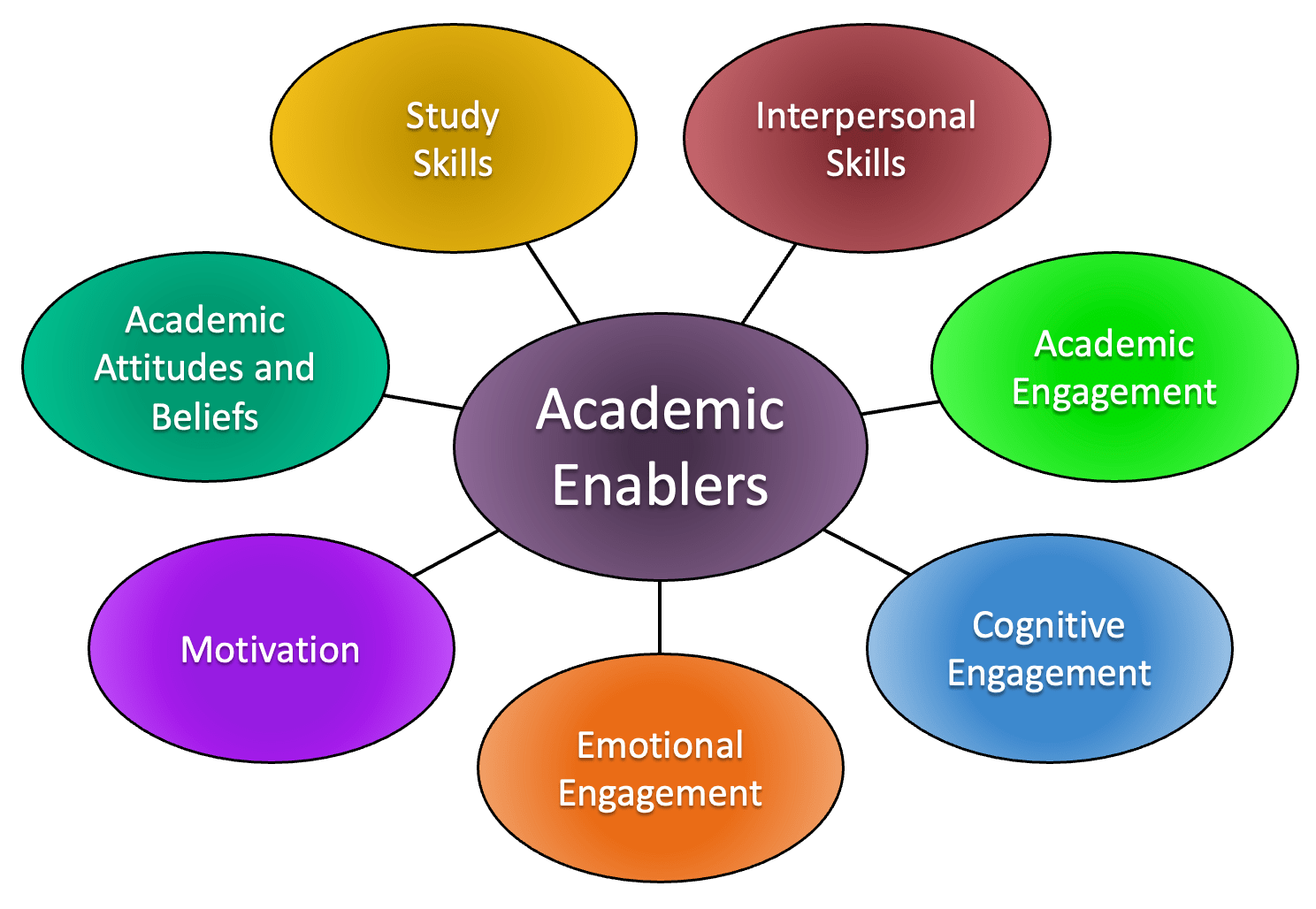What is Academic Competence?
Academic competence reflects the skills, attitudes, and behaviors that contribute to students’ academic success. These skills and attitudes fall within two broad domains – academic skills and academic enablers.
Academic skills include basic and complex skills such as reading, writing, mathematics, and critical thinking skills.
Academic enablers are the skills, attitudes, and behaviors that facilitate a student’s learning.
The ACES-2 is unique in that it assesses academic skills and academic enablers. Most people are familiar with academic skills as they often are the primary focus of instruction and explicitly taught in school. Academic enablers may be less familiar, but research has shown them to be critical for promoting students’ success in school and beyond.
Interpersonal Skills
Cooperative learning behaviors necessary to successfully complete group-related academic tasks.
Academic Engagement
Behaviors that reflect attentive, active participation in class.
Cognitive Engagement
A student’s level of investment in and willingness to exert necessary effort for comprehension of complex ideas or mastery of difficult skills.
Emotional Engagement
The extent of students’ emotional reactions to teachers, classmates, and school in general as well as their feelings of belonging within a school/class and their valuing of academic success/outcomes.
Motivation
Students’ approach, persistence, and level of interest regarding academic subjects.
Academic Attitudes and Beliefs
Attitudes or beliefs students have about themselves in relation to academic work.
Study Skills
Behaviors or strategies that facilitate the processing of new academic material.

Why are Academic Enablers Important?
Academic Enablers Predict Students’ Academic Success
Academic enablers have been consistently found to be key predictors of student achievement. A review synthesizing evidence from over 70,000 students found that one academic enabler, study skills, were key predictors of college G.P.A. – even controlling for traditional standardized test scores (Credé & Kuncel, 2008).
Academic Enablers Predict Students’ Life Success
Beyond success in the classroom, academic enablers predict life and career success. For example, a large scale study found that academic enablers rivaled cognitive skills as predictors of hourly wages, high school/college completion, and career longevity (Heckman, Stixrud, & Urzua, 2006).
Academic Enablers Can be Taught and Practiced
Perhaps most important, academic enablers can be improved with well-targeted interventions. One study synthesizing research on nearly 40,000 students found that motivational interventions have strong effects on students’ academic achievement and behavior (Lazowski & Hulleman, 2016).
